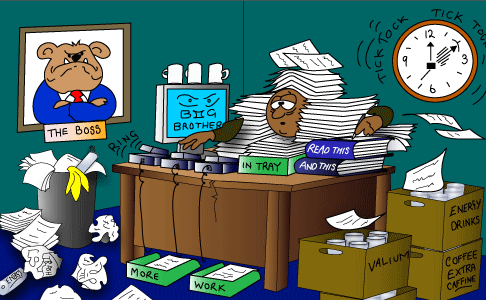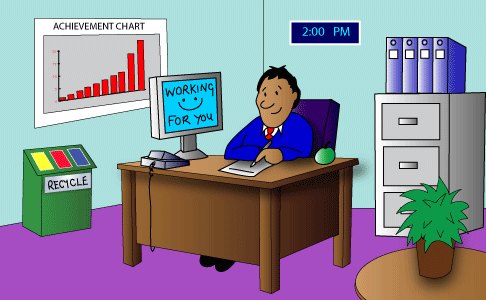Someone with workplace stress is likely to be frequently absent, keen to leave and prone to a higher-than-average number of errors or misjudgements. The good news is you can help prevent it.
This free online tool form the NHS helps you to assess the state of your health and wellbeing
The i-resilience report from Robertson Cooper and online resources are the first set of integrated resilience tools available that are completely free to use, both for you and your entire organisation. Using their validated personality questionnaire and based on the responses, the i-resilience report reveals which of the four key components users naturally draw on...
Workplace stress test Take this short test to find out if your job is leading to stress. It will provide you with a short assessment plus lots of useful guidance and links to get further information http://www.nhs.uk/Tools/Pages/Workplacestress.aspx
What’s making you stressed? If you’re stressed, whether by your job or by something more personal, the first step to feeling better is to identify the cause. The most unhelpful thing you can do is turn to something unhealthy to help you cope, such as smoking or drinking. “In life, there’s always a solution to...
Stress Is my firm required by law to tackle stress? As an employer you have duties under health and safety law to assess and take measures to control risks from work-related stress. You also have a duty under common law to take reasonable care to ensure the health and safety of your employees. If one...
The causes of stress What are the common causes of stress for employees? There are many factors that can cause stress and it maybe that it is a combination of these and domestic problems that you need to be aware of. These include: Demands of the job and excessive workloads This is where employee’s feel...
Signs and symptoms of stress at work Be aware of changes in behaviour and working practices to identify the signs and symptoms of stress. These include: · Working longer hours · Increased tiredness and irritability or aggression · Deteriorating work and performance · Indecision and poor judgement · Loss of sense of humour · Uncommunicative...
Flowchart: How to have a difficult conversation In private – switch off phones, ensure you are uninterrupted Ask simple, open questions which are non-judgemental Avoid being patronising and don’t make assumptions Maintain eye contact Speak calmly Listen and respond to the issues raised by reflecting back what they say to clarify the causes Encourage the...
What do I have to do?
Find the information that suits you best!

